Practical information
| Sep | 2024 | 14h00 | 18h00 |
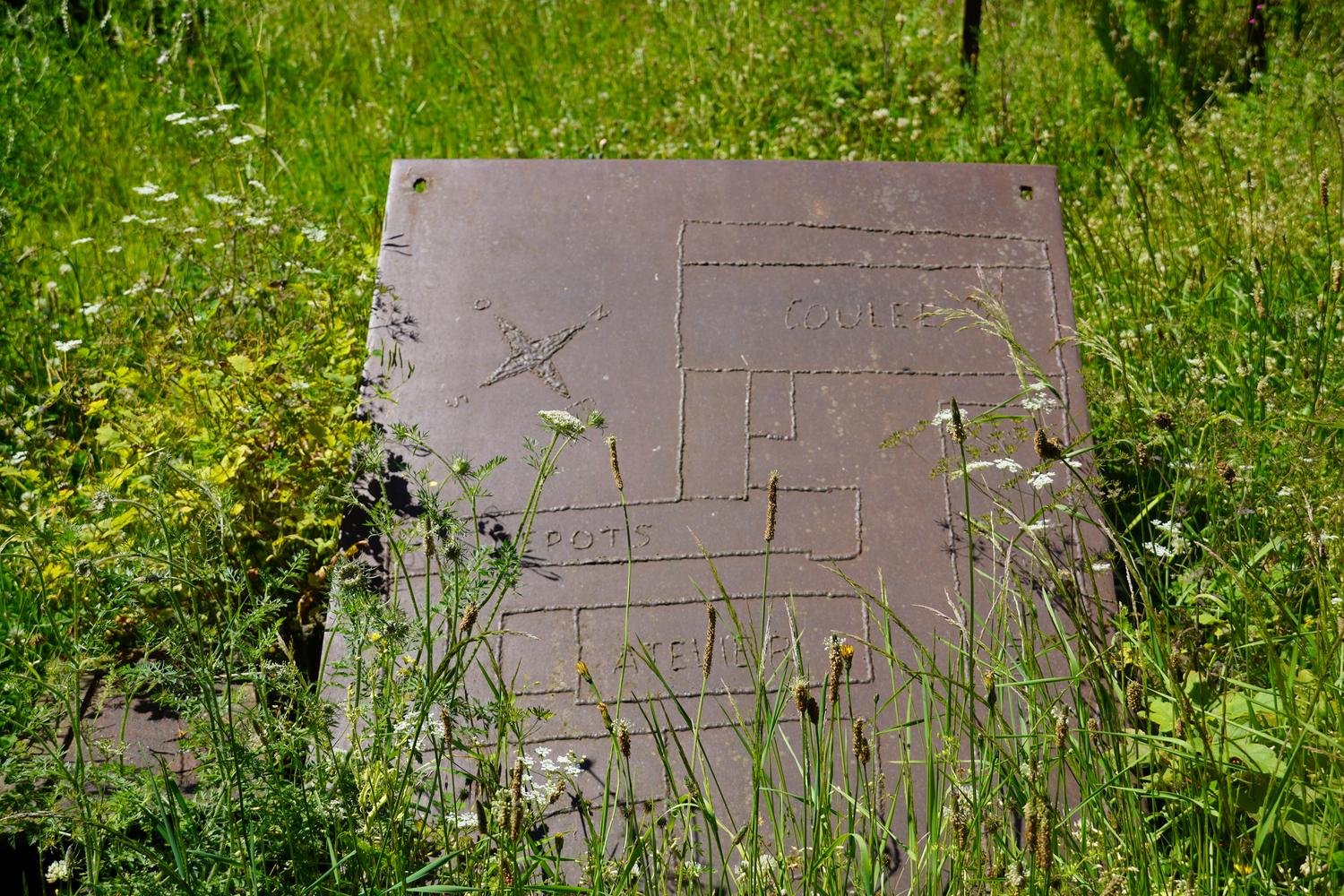
Who can change Carnival?
- listening session
- talks
- book launch
Rituals in public space, between continuity and rupture: who can change Carnival?
Traces
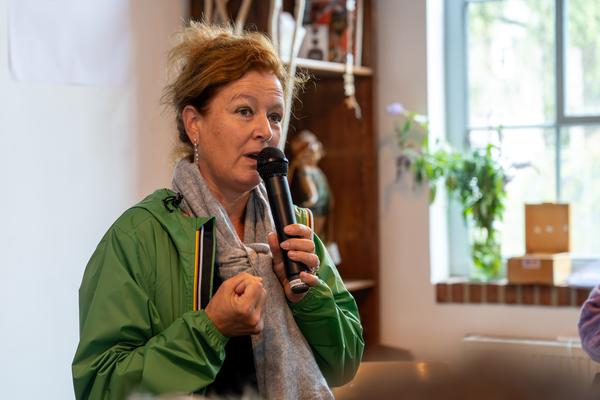
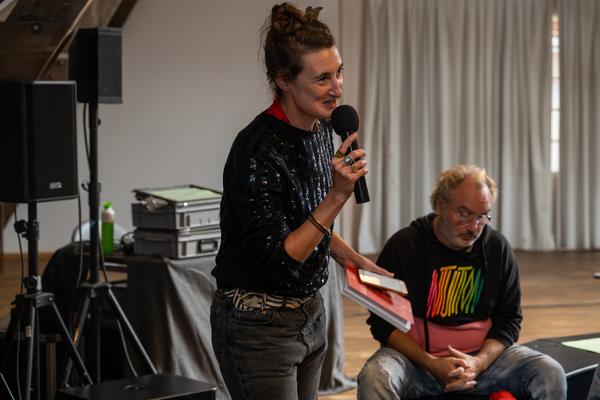
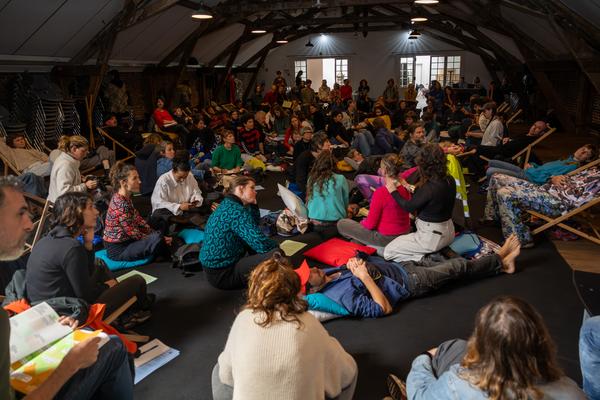
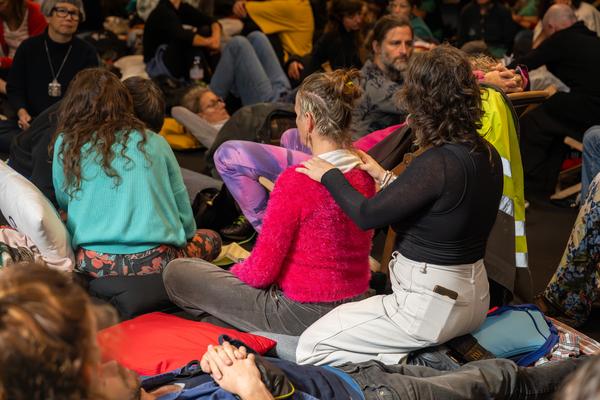
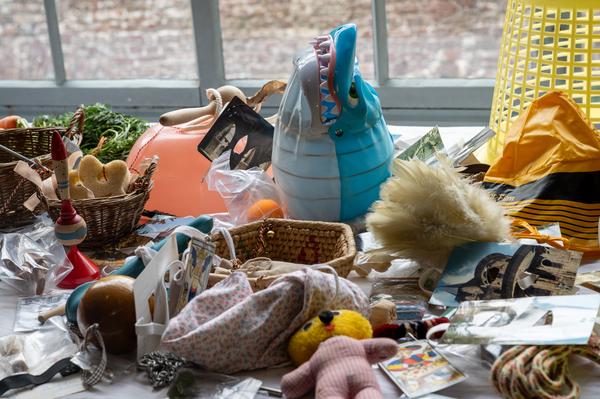
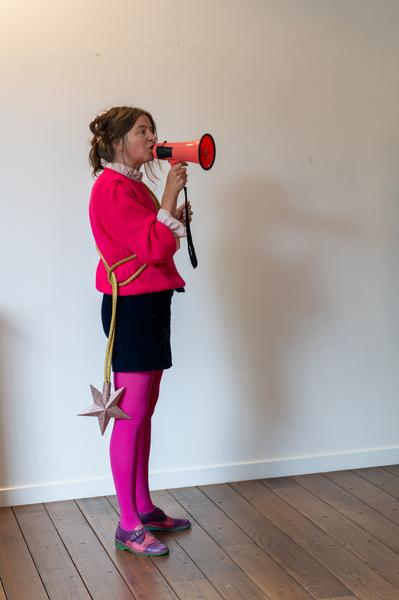
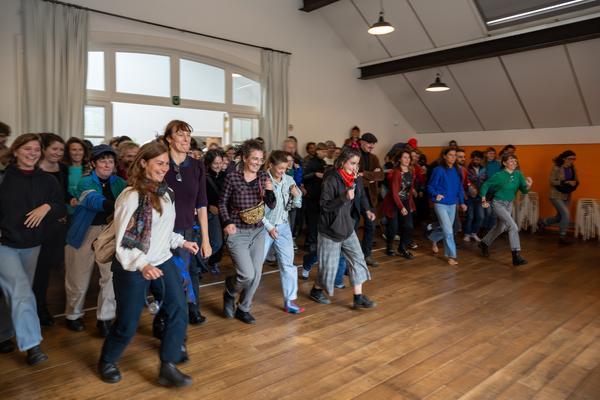
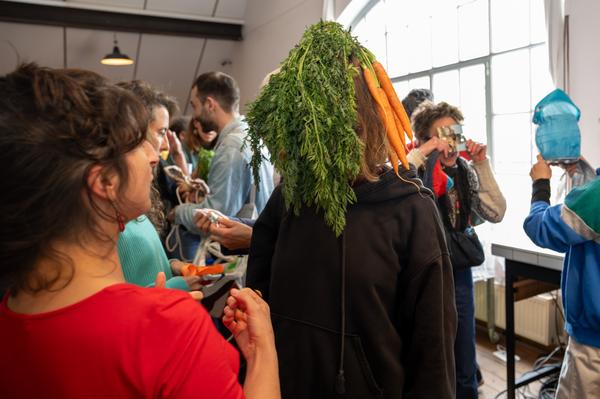
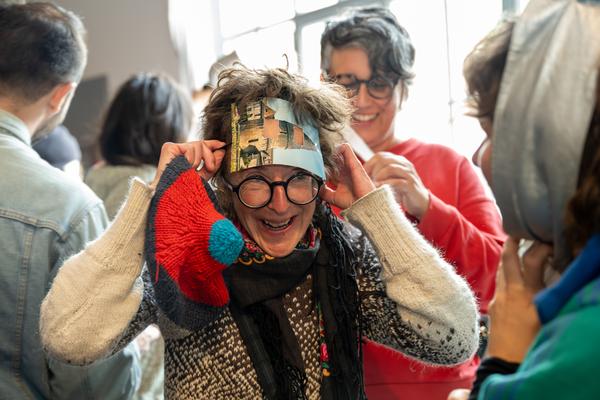
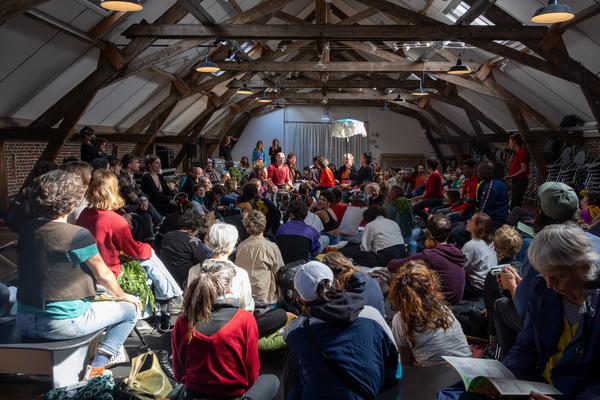
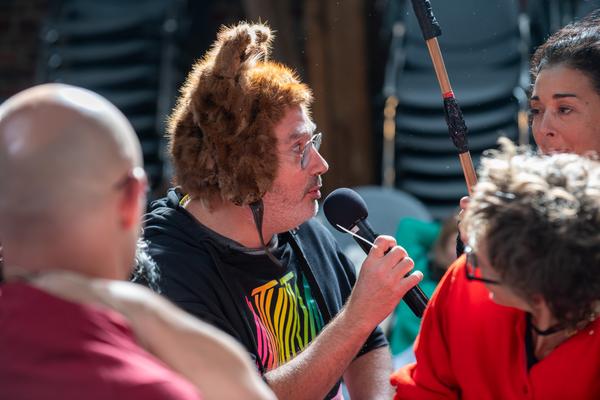
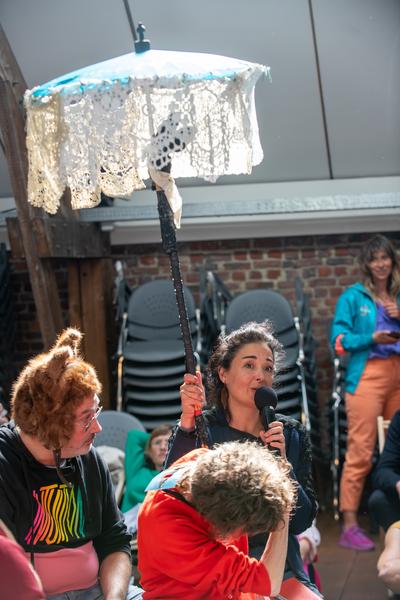
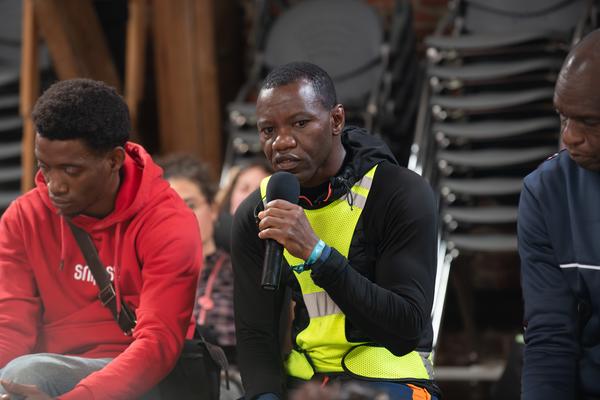
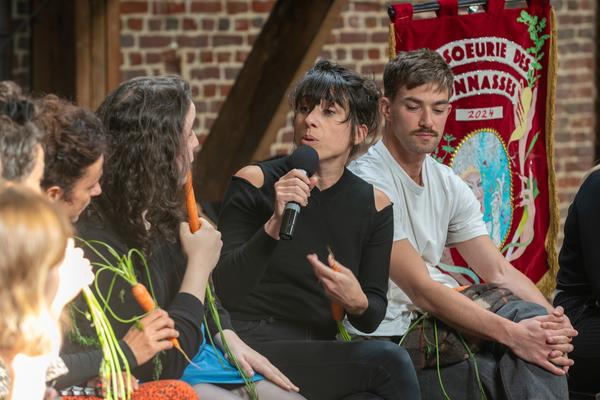
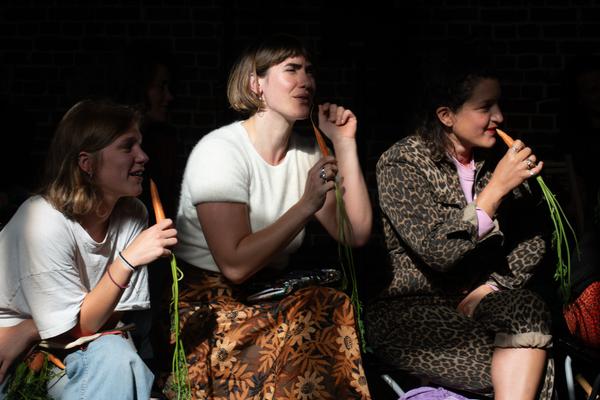
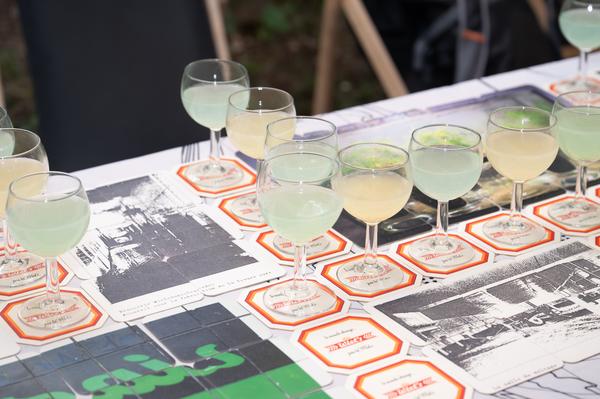
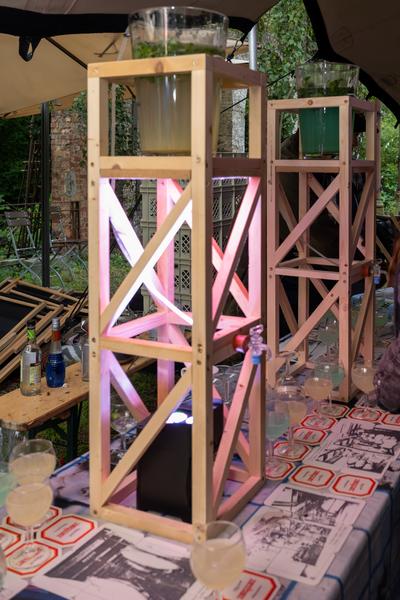
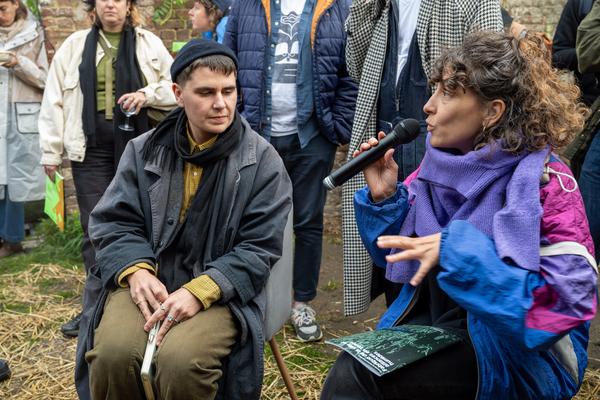
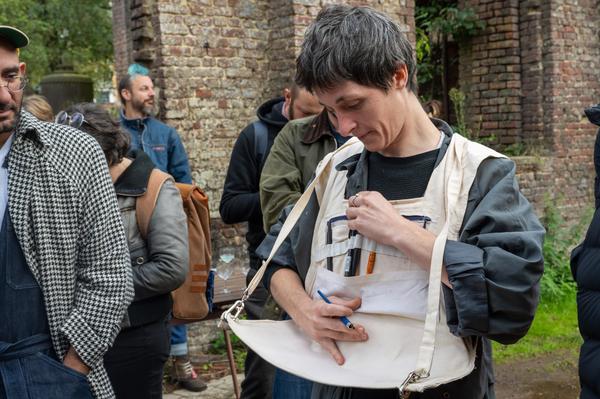
14:00 - Presentation of La Fonderie
14:15 - Listening session
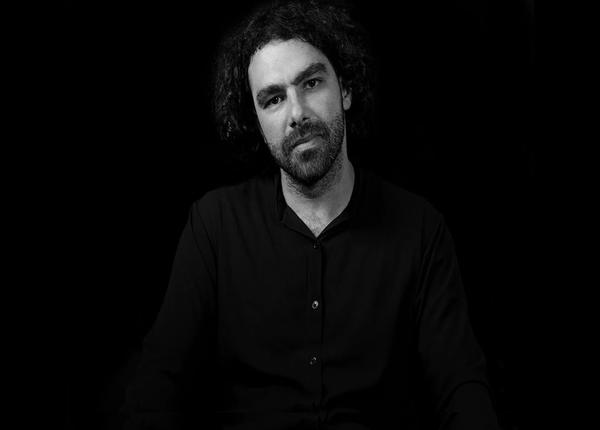
Mohamed Amer Meziane (FR/US), Interview around the invisible in the arts (in French)
Contemporary art has gradually turned the ritual into an alternative to performance. This gesture deserves to be questioned because it has multiple implications: Is every performance a ritual? Is art as we experience it a product of the disenchantment of the world? If so, can we really make rituals again without subscribing to the hypothesis of an illusory or even impossible re-enchantment of the world? These questions deserve to be explored to understand the articulation of the current mutations of art and the wider context of cosmopolitical and historical upheavals. This interview will attempt to address this.
Mohamed Amer Meziane is a philosopher and historian trained at the Sorbonne in Paris. He now teaches French and Middle East Studies at Brown University, after teaching for four years at Columbia University. He is the author of The States of the Earth: An Ecological and Racial History of Secularization. His second book is titled At the Edge of the Worlds: Towards a Metaphysical Anthropology. The former is a historical ethnography of 19th century Western philosophers and unknown non-Western theorists, notably from Algeria and Haiti. From Rousseau and Hegel to Abdelkader, it shows how anthropology and orientalism shaped the intertwined histories of philosophical (anti)-metaphysics and social sciences. The latter deploys a philosophy of the Algerian revolution, focusing on North African philosophies and literatures of liberation.
15:00 - Panel discussion
Facilitation - Emmanuelle Nizou
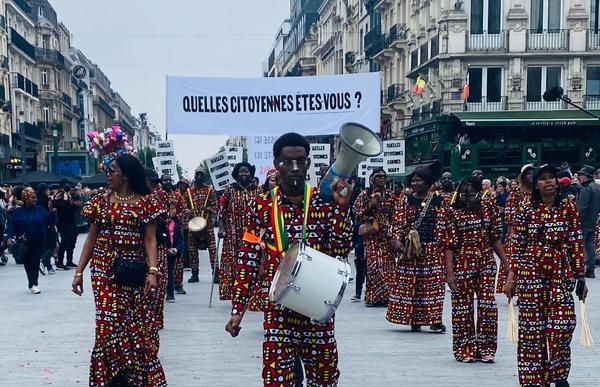
La Voix des Sans-papiers (BE), Resistance of the Unseen
On 1 June 2024, the 13th edition of the Zinneke Parade took place, a traditional Brussels event in which the city's associations put together "Zinnodes" and parade through the streets in floats and costumes. This year's theme was "Plaizir". La Voix des Sans Papiers proposed a Zinnode entitled "The Resistance of the Unseen". Here is their statement: "We are without papers but not without a voice. We are fighting for our rights by any means necessary. Art is one of our tools. In the great imperialist parade of the West, which thrives on the plunder of our home countries, we must invent our own costumes, our own songs, and inhabit our own territories. The street is one of our homes. And we are often working to build or clean yours. Yet the state and its media turn our presence into a crime, our cry into silence. This is not a show, it's a demonstration. We're not here just for the fun of it, we have a message to get across on a sign pointing to Heaven: WE EXIST."
For over 50 years, groups of undocumented migrants have been organising and campaigning for recognition of their rights. In 2012, the march of undocumented migrants travelled through several European countries, including Belgium, demanding freedom of movement and settlement for all migrants. In 2014, a new march of migrants crossed Europe from Berlin to Marseille under the name of the European Migrants Caravan. In June 2014, it stopped off in Brussels, where a number of undocumented migrants decided to form a collective: La Voix des Sans-Papiers Bruxelles (VSP). Since 2014, numerous actions and activities in the buildings occupied by VSP have enabled the collective to organise its members, despite police and administrative violence.
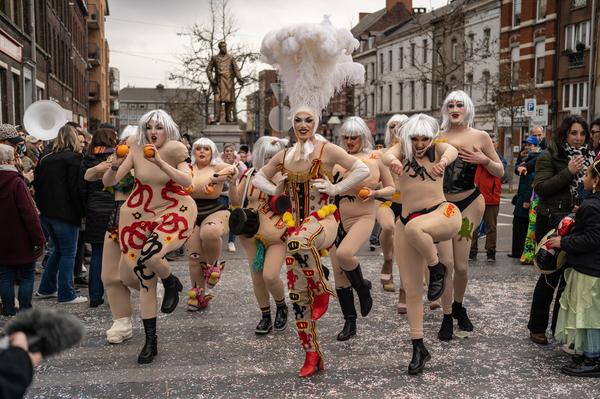
La Consœurie des Connasses (BE), We are creatures of farts
La Consœurie des Connasses is the result of CHARIVARI, a shared art project led by Sara Selma Dolorès and Bastien Poncelet. Since 2020, they have been running workshops at Central (La Louvière cultural centre) combining the carnival spirit with queer culture, to question the hetero-patriarchal heritage of this folk tradition. Participants dance, sing, wear make-up and create costumes. La Consœurie des connasses and its Gilette - a re-appropriation of the Gilles folk figure - was born at the Soumonce Carnival in La Louvière in 2023. During Feral, Les Connasses share their experiences, somewhere between subversion and the perpetuation of traditions.
Author, director and actress Sara Selma Dolorès is a key figure on Brussels' historic queer scene. She was a member of the duo Boudin & Chansons, which produced a show in the form of a settling of scores with men, women, mothers and feminism. She turned to performance and fixed her first garter with the Bas Nylon collective in 2014. This season at the Théâtre de la Balsamine she will present her first show with a captive audience, RIRE (pour en finir avec soi-même).
Bastien Poncelet is a set and costume designer. Also a performer and Belgian drag queen, he is Kimi Amen, which he performs in his travelling cabaret Le Grand Bordel National and in well-known Brussels nightlife venues such as Cabaret Mademoiselle.
With Dolorès, he has launched CHARIVARI, a joint art project with the aim of restoring lability to contemporary folklore.
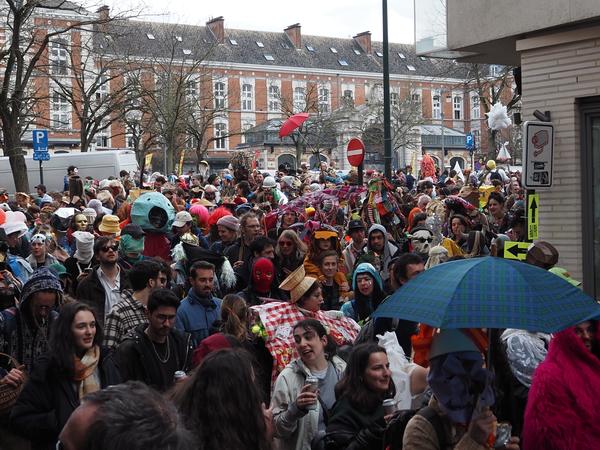
Le Carnaval Sauvage (BE), How the Carnaval Sauvage grows
One of the questions that preceded the creation of the Carnaval Sauvage was: can we also invent a tradition? The collective will tell the story of how the Carnaval Sauvage was built by sorting and reinvesting European carnival traditions that preceded it, but also on collective practices (costumes, music, trials, floats, routes, fire, etc.), a horizontal and independent organisation and a self-legitimised investment of public space.
The Carnaval Sauvage is organised in Brussels since 2012 by an open, horizontal collective. It's a young carnival that celebrates the end of winter as much as it does the processes of gentrification. It aims to reinvent a tradition that reflects something of the lives of those who make it happen, and to develop other figures of otherness. After judging the property developer and the bureaucracy, the procession sets off through the working-class districts of Brussels. Off the beaten track, but not out of touch with social concerns
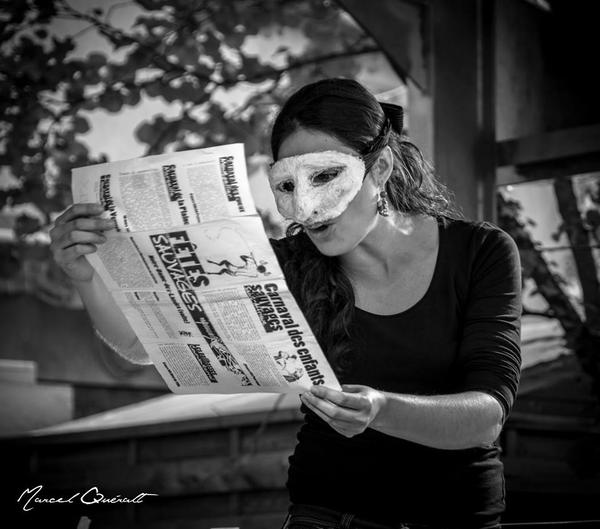
Anaïs Vaillant (FR), To whom and to what does tradition belong?
Who and what does tradition belong to? How do carnival practices enable us to rethink the notion of tradition and experiment with festive rituals? This discussion will be based on the activities of the laboratory of the Collectif Anonyme du Carnaval Ambulant, an informal activist group that has been working since 2009 to reinvigorate the contemporary carnival dynamic in different social milieux and bring together so-called traditional and autonomous carnivals.
Anaïs Vaillant is an anthropologist and a street, stage and radio artist. She works on traditions, appropriations and cultural inventions in popular festive events in France, Brazil and elsewhere.
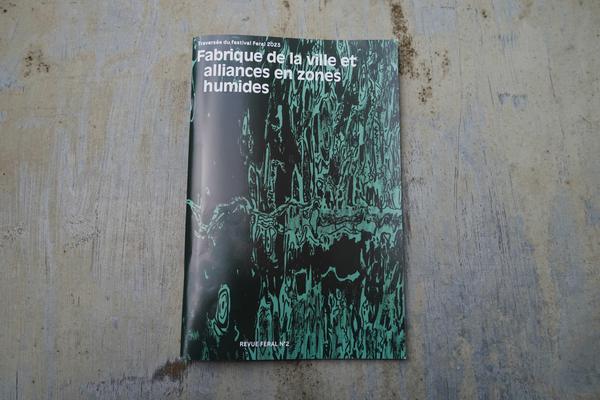
17:30 - Launch of Revue Feral n°2
Hanna El Fakir (texts) and Nino André (drawings) were on a special mission to collect and share traces of the Feral 2023 festival. Fabrique de la ville et alliances en zones humides, co-conceived with graphic designer Lucie Caouder, is the result of this mission.
In the open air and at the end of summer, in situ and roaming from the FLOW swimming pool to the dissident Marais Wiels, in shorts and swimming costumes, essential questions were addressed.
Starting with the concrete case of the Marais Wiels and other insurgent lakes, how do we develop the imaginaries of urbanity? What is the state of interaction between politicians and civil society when new public spaces are invented? What role does art play in all this? Can it open up specific avenues in the creation of a sensitive city?
Revue Feral n° 2 reports on this collective journey, giving the floor back to the people involved and the experiences they shared. It includes texts about Stalker and their Shcool of Nomadic Urbanism, Cuesta and cultural urbanism and the mind map of the Marais drawn by Laurent Petit of the ANPU - all activist and transformative words.
For the end of this day, we invite to celebrate the launch of this second issue of Revue Feral together.
In the presence of Hanna El Fakir (texts) and Nino André (drawings). In a scenography by Tom & Nicolas Valckenaere.